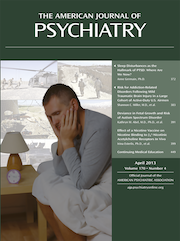Practice-Based Versus Telemedicine-Based Collaborative Care for Depression in Rural Federally Qualified Health Centers: A Pragmatic Randomized Comparative Effectiveness Trial
Abstract
Objective
Practice-based collaborative care is a complex evidence-based practice that is difficult to implement in smaller primary care practices that lack on-site mental health staff. Telemedicine-based collaborative care virtually co-locates and integrates mental health providers into primary care settings. The objective of this multisite randomized pragmatic comparative effectiveness trial was to compare the outcomes of patients assigned to practice-based and telemedicine-based collaborative care.
Method
From 2007 to 2009, patients at federally qualified health centers serving medically underserved populations were screened for depression, and 364 patients who screened positive were enrolled and followed for 18 months. Those assigned to practice-based collaborative care received evidence-based care from an on-site primary care provider and a nurse care manager. Those assigned to telemedicine-based collaborative care received evidence-based care from an on-site primary care provider and an off-site team: a nurse care manager and a pharmacist by telephone, and a psychologist and a psychiatrist via videoconferencing. The primary clinical outcome measures were treatment response, remission, and change in depression severity.
Results
Significant group main effects were observed for both response (odds ratio=7.74, 95% CI=3.94–15.20) and remission (odds ratio=12.69, 95% CI=4.81–33.46), and a significant overall group-by-time interaction effect was observed for depression severity on the Hopkins Symptom Checklist, with greater reductions in severity over time for patients in the telemedicine-based group. Improvements in outcomes appeared to be attributable to higher fidelity to the collaborative care evidence base in the telemedicine-based group.
Conclusions
Contracting with an off-site telemedicine-based collaborative care team can yield better outcomes than implementing practice-based collaborative care with locally available staff.



